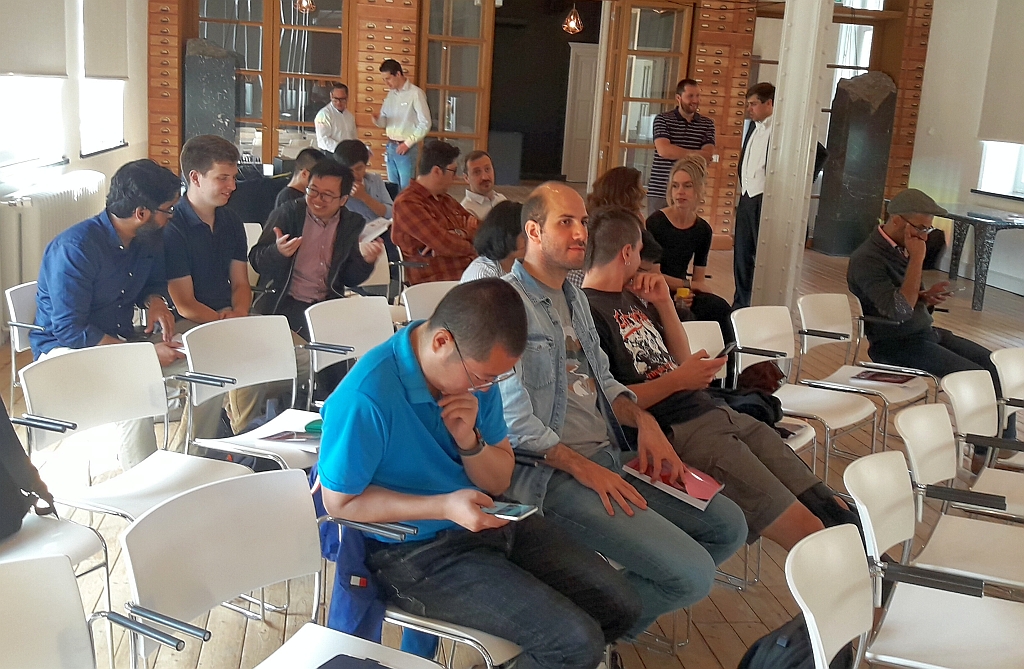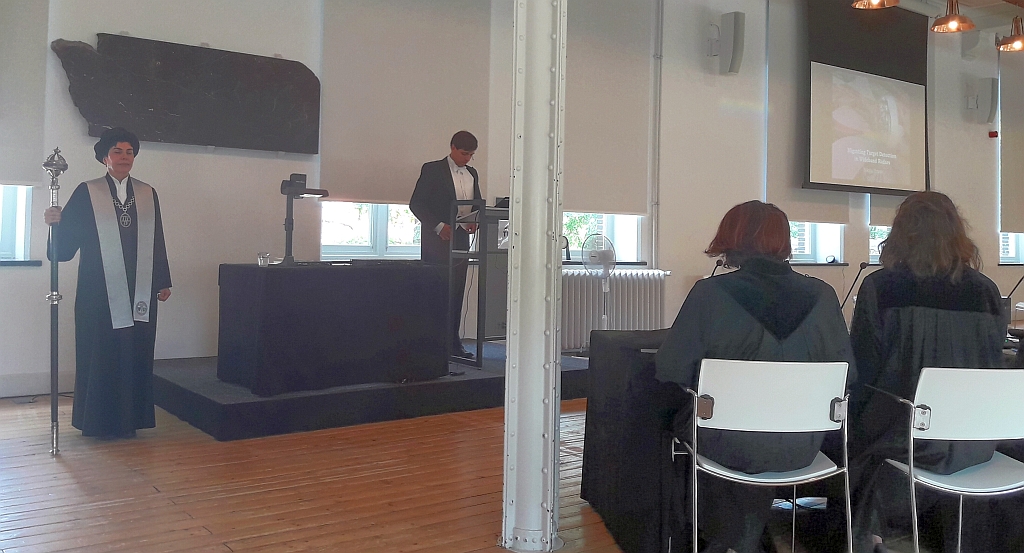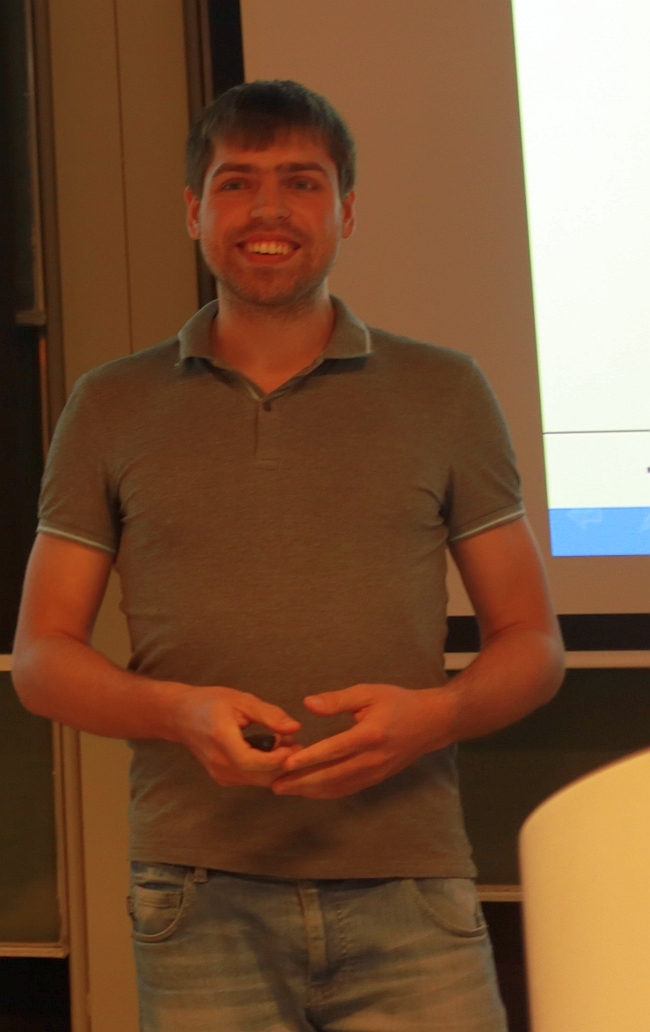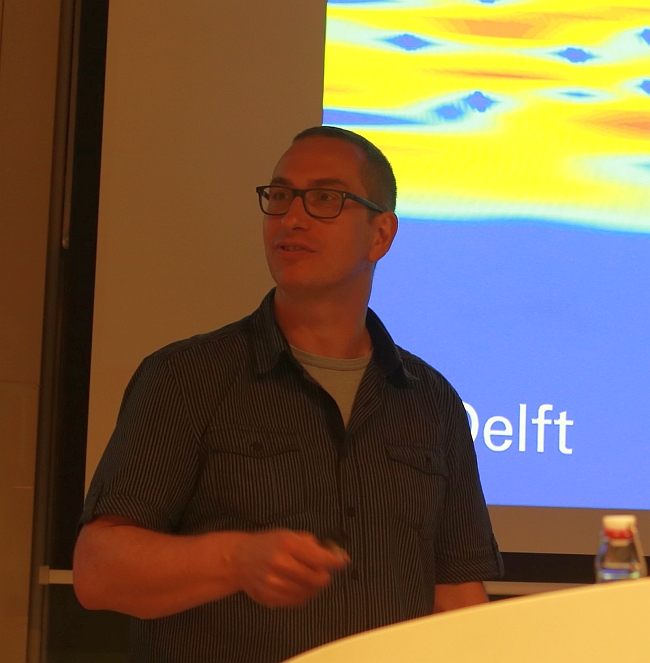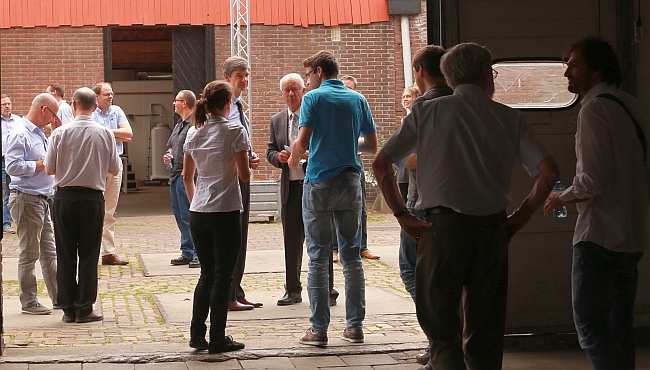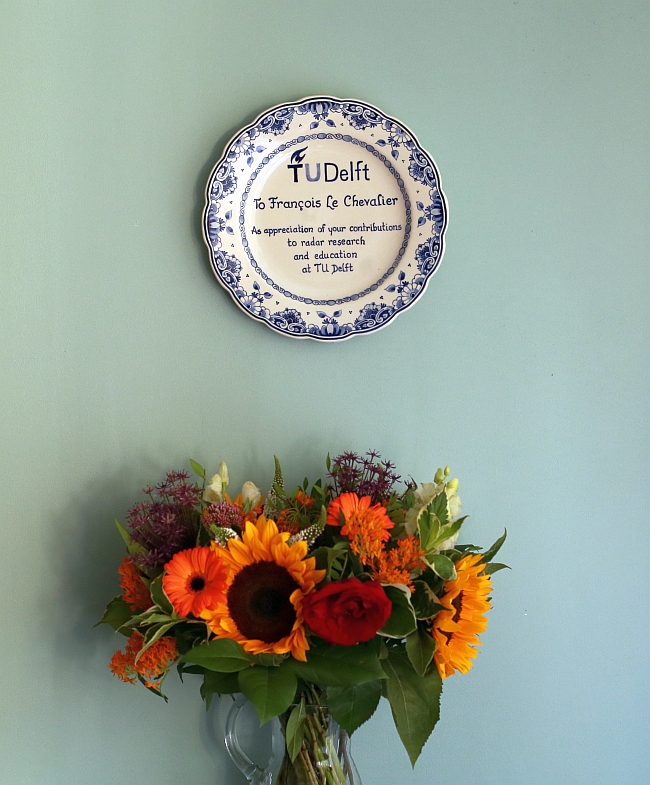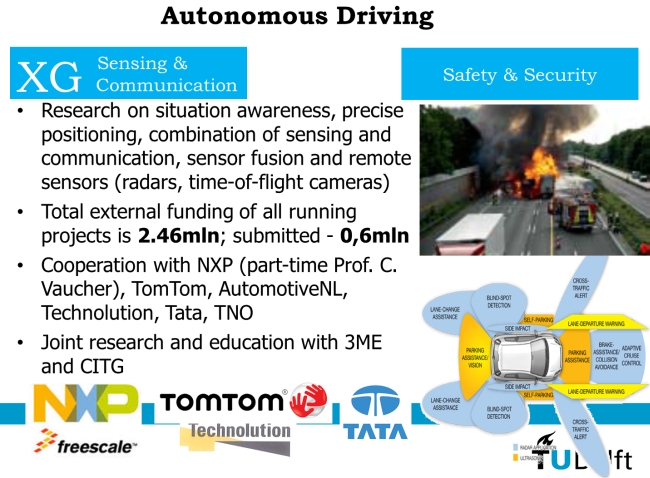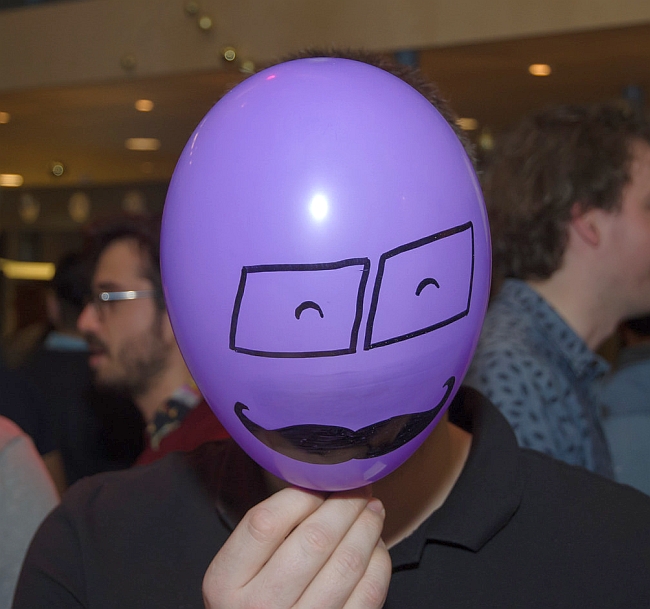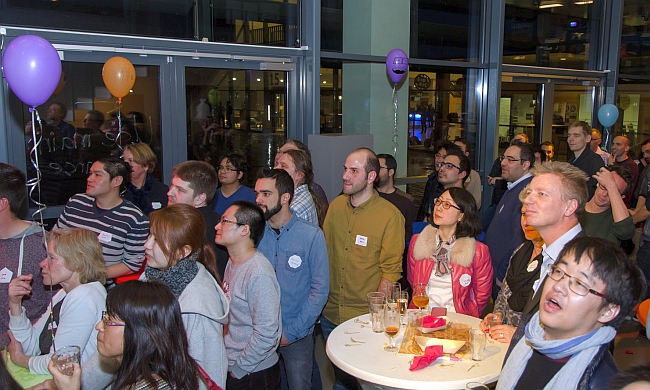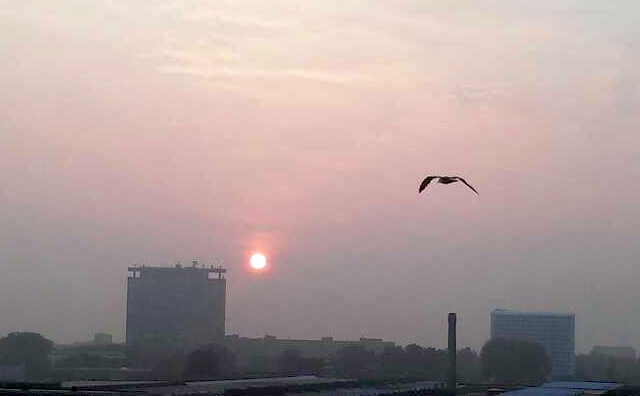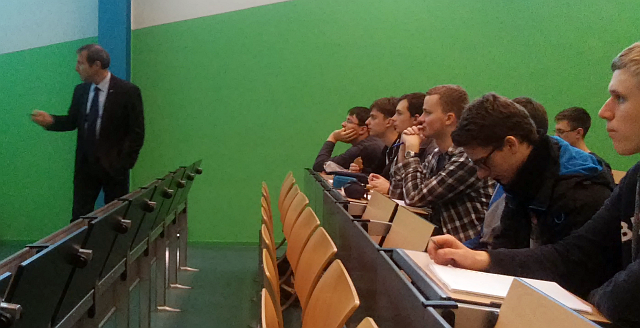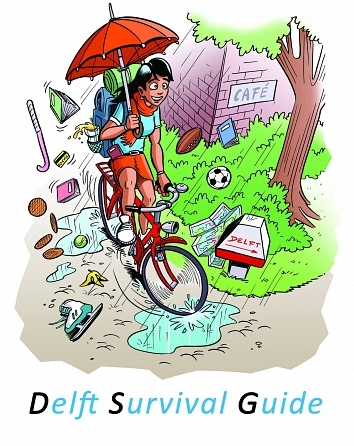Blog Archives
Photo-report from Nikita’s defence
Francois le Chevalier – Thanks a lot!
Dear friends,
Many thanks and warm gratitude to each of you for this superb day in Delft: with my wife Danièle, we have really been deeply moved, and admirative of the seamless organization, the quality and good humour of the presentations, the variety of persons, from the younger students – to which I owe a lot for so many good questions and lively discussions – to the … less young colleagues (but still younger than me – take care!), friends now!
Thanks to each of you, those who were there, and also to those who couldn’t come: these years shared between TU Delft and Thales are certainly my richest professional experience with human nature – and also the best part of my research! And those mornings in Delft, cycling along the canals – even when the weather was not …exactly Italian! – I will miss them, for sure…
Attached are several pictures selected by my wife – just a glimpse of so many exchanges and laughs! She especially appreciated the blue and yellow colours, Vermeer-style she tells me, of the ambiguity functions presented by Pascal. Also, the lifelines sketched by Nikita provide us with a … millenarist view of research achievements!
We will meet again, here or there – anyway, I need Delft from time to time, and there are conferences: Radar 2019 in Toulon, France! The splendid Delft-blue plate you offered me is on the wall, and my thoughts are with you: good health, open and creative thinking, human understanding and joined efforts – and perseverance!
Sincerely, I wish you the best
François
Francois Le Chevalier
Emeritus Professor, Radar Systems Engineering, TU Delft;
Chief Scientist (retired), Thales Land & Air Systems;
SEE, Président du Comité des Grades.
Seminar Autonomous driving (extended XG seminar)
Seminar will take place in Snijderszaal on Monday, May 15 at 11:00. Lunch included.
Program
- 11.00 – 11.05 Opening (by Alexander Yarovoy and Leo de Vreede)
- 11-05 – 11.35 Cicero Vaucher, ‘ Automotive radars’
- 11-35 – 12.05 Dariu Gavrila, ‘ Autonomous driving ‘
- 12-05 – 12.35 Riender Happee (or represented by PhD) ‘ Human Factor on autonomous driving’
- 12:35 – 13:00 Lunch break (Lipkenszaal)
- 13.00 – 13.30 S4-Drive project (PhD’s Rossiza Gourova (EEMCS) and Joris Domhof (3ME) )
- 13.30 – 14.00 CRUISE project proposal (Cicero Vaucher, Masoud Babaie and Faruk Uysal)
ME Department New 2017 Years Drink
MS3 demonstrates a few radar sensors for automotive applications during the Future of Driving Symposium
Invited lecturer
In the second quarter of current teaching year all our lecturers are involved into the course “EE3340TU: Microwave Sensors and Radars for Airport Applications”, which is a part of the Aerospace BSc program minor “Airport of the Future”. Traditionally we also invite world-wide recognized specialists in the field of radars and avionics to give a few lectures. This year our guest is Prof. Felix Yanovsky from the Kiev International University of Civil Aviation, Ukraine. He is currently providing students a set of lectures “Airport Surveillance Systems”.
TU Delft news: Rain Radar installed in Rotterdam
Should you go by bus or by bicycle? Take your umbrella or your sunglasses? A newly installed rain radar in Rotterdam may help, as it will be able to accurately chart and predict local precipitation. Main aim of the project is to prevent local flooding and water damage.
A new type of rain radar was installed in Rotterdam on 22 September. The radar was installed on the roof of the Delftse Poort office building on the Weena. It will be used to accurately chart the rain patterns in Rotterdam.
As high as possible
Unlike the existing radars that measure precipitation throughout the whole of the Netherlands, the recently installed rain radar specialises in measuring local precipitation. For optimum observation of precipitation in the city, the rain radar must be placed as high as possible above the city’s skyline. The radar was therefore placed on the roof of the Delftse Poort office building on the Weena – one of the tallest buildings in the city centre. The radar was hoisted up via the window cleaner’s lift to a height of 150 metres and fixed to a special frame on the roof in order to withstand strong wind gusts. The radar’s range is 30 kilometres and therefore covers the entire city and the surrounding area, including the Europoort.
Test phase
The radar will now be extensively tested. The rotation of the radar antennas requires very precise control to enable accurate measuring. Processing the radar signals – many terabytes of data – places high demands on data communication for which special fibre-optic connections have been laid running up to the roof. Following the test phase, the radar will officially become operational in mid-October.
RainGain
The Rotterdam rain radar forms part of the wide-ranging European RainGain project, a transnational project aimed at improving the prediction of pluvial floods in our cities. RainGain develops and tests innovative tools and practices based on the use of high resolution radars in four pilot cities: Leuven, London, Paris, and Rotterdam.
More information on the use of rain radars is provided in this interview with Marie-Claire ten Veldhuis (CiTG):
Delft Survival Guide by TU Delft’s Delta
Why is the Architecture faculty called BK? What is sugar called in Dutch? What does a person do for a midnight snack in Delft? Why is the food at the Aula so bad? Okay, we can’t help with the last one, but TU Delta has answers for the rest and more.
TU Delta is proud to announce the launch of their very first e-book – Delft Survival Guide. Free to download and accessible on any online reader, this is a compilation of the hugely popular Survival Guide series published in TU Delta. The book is your handy reference guide to Delft. From eating out and public transport, to understanding Dutchisms. So grab your copy today!

